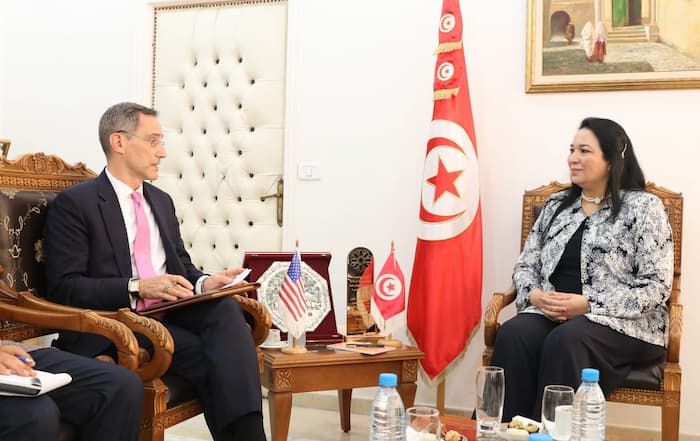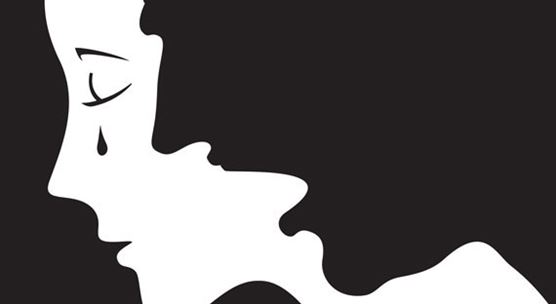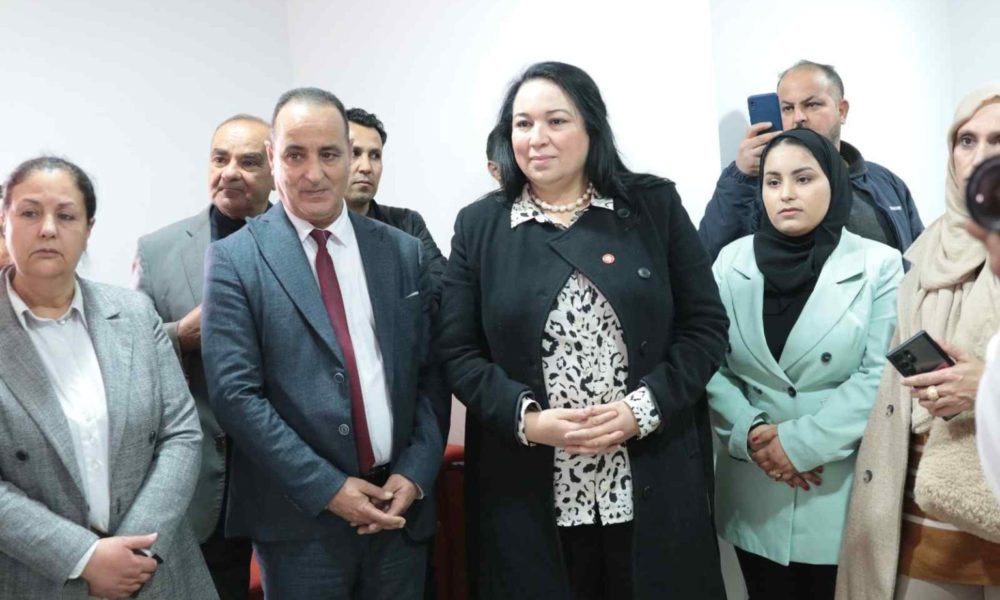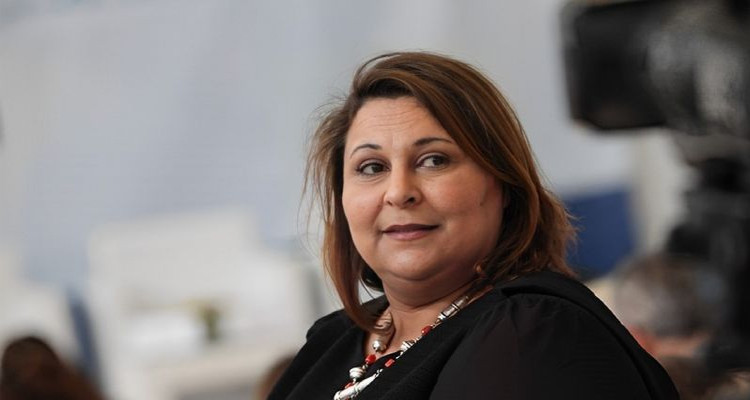Femicide in Tunisia: A scourge that is setting in…
By
D. | 1 hour ago June 6, 2023

Femicide, as defined by the United Nations Entity for Gender Equality and the Empowerment of Women (UN Women), is the most extreme form of violence against women and their inequality. It is often confused, in the texts of laws, with homicide, which makes the classification of crimes a little more complicated, but no one can deny that it is a real societal phenomenon on the rise.
The women; privileged targets throughout history…
History, in a general way, teaches us that women were stoned, buried alive, killed, disemboweled or even burned alive by their relatives… They had different names and lives but they looked alike without even knowing it; the same fate: a sad end.
It all starts with a simple “NO”, the refusal could concern violence, harassment, separation, deception or other…
At the beginning, an argument breaks out, a slap, kicks and then death...under the eyes of the children.
As Simone de Beauvoir said, “
All it takes is a political, economic or religious crisis for women's rights to be endangered. These rights are never taken for granted; you must remain vigilant throughout your life ”.
Femicide in Tunisia: A scourge, a real...
In Tunisia,
violence against women is defined in Article 3 of Law 58-201 7 as "
any physical, moral, sexual or economic attack against women, based on discrimination based on sex and which results in harm, suffering or bodily, psychological, sexual or economic harm to them and also includes the threat of such harm, pressure or deprivation of rights and freedoms, whether in life public or private ”.
According to the same article, the murder of a woman designated by the term homicide is a physical violence which is "any harmful act or ill-treatment affecting the integrity or the physical safety of the woman or her life, such as beatings, kicks, wounds, thrusts, disfigurement, burns, mutilation of certain parts of the body, confinement, torture and homicide. »
Being the pioneer for women's rights in the Arab world, there is
no shortage of laws in this country, including the famous Law No. 58 mentioned above, it is rather the protection and monitoring system that is pointed out by activists and deemed ineffective since women continue to die every day under the blows.
And this is proven by
the terrifying figures that illustrate a nightmarish reality : the resurgence of feminicides which continues in the indifference of society.
More than 10 feminicides in less than 6 months...
“
Refka Charni, shot dead by her national guard officer husband on May 10, 2021, a crime that shocked Tunisian public opinion.
Wafa Sebai immolated by her ex-husband on October 29, 2022 and so many other women have been murdered by their intimate partners. Singular destinies, whose common point is to have suffered the influence of a husband, ex-husband or partner until death.
Mothers, sisters, daughters and elderly women have been victims of murder by their father, brother, son or other male family member or sometimes even by a stranger, such as the case of Rahma Lahmar 29 years old , found in a ditch in Aïn Zaghouan on the outskirts of Tunis, four days after her family reported her missing on her way home from work. Some people have called for the application of the death penalty against the murder of women, ” reads
the UNFPA report .
And that's not all…
Souad Souidi, mother of two daughters, was strangled to death by her husband on April 13 in Nasrallah, under the governorate of Kairouan.
On April 15, a woman was killed by her husband. She received several stab wounds in various parts of her body in
Menzah 6 . While trying to defend her, the victim's friend was in turn attacked by the husband.
An investigation has been opened to determine the circumstances of this murder.
On April 29, the body of a 30-year-old woman, bearing the marks of violence, was admitted to Monastir hospital.
The husband of the deceased, then presented himself to the police to declare that he is responsible for the death of his wife explaining that he just wanted to call her a bewitchment! And this, by plunging his hand deep inside her throat.
The General Directorate of National Security announced on May 3 the
arrest of a taxi driver in Ariana who intentionally hit a woman near the market in the region.
6 days later, another tragedy took place in Kondar, within the governorate of Sousse, where a 30-year-old pregnant woman and mother of 3 children was violently strangled by her husband.
During the same week, the supervisory ministry announced that it had received an alert concerning the suspicious death of an infant in Tunis, indicating that the mother, aged 37, had been taken care of.
The woman was abused herself, and revealed that her husband used to abuse her and her baby. The day of the tragedy when the infant died, the father wanted to bury him, without informing the authorities, before fleeing.
The association in question has, in fact, 15 feminicides since the beginning of the current year, including 12 cases of domestic violence , that is what President
Sarra Ben Saïd said at the microphone of Tunisie Numérique.
She said that
80% of the women concerned have made the choice to file complaints and go to court to put an end to their suffering .
Neila Zoghlami, president of the Tunisian Association of Democratic Women (
ATFD ), for her part, indicated that
the number rose to 17 cases !
Our speaker considered that these are no longer isolated cases but rather a dangerous phenomenon that requires urgent intervention on the part of the State.
“
8 out of 9 feminicides were perpetrated by a family member and in 5 cases, the perpetrator was the spouse . The causes are generally related to separation, divorce, jealousy and others… Most women victims of femicide are most often aged between 19 and 30 years old . The majority are married with children .
46% of victims do not work or are in vulnerable professions , such as housekeepers or women working in factories, etc. And to add that feminicides are generally committed in the places where the woman lives, say in 61% of the cases .
We also tried to see if the aggressor had a psychiatric or legal history or if he used alcohol, but we found that only 3% of the perpetrators used alcohol and drugs . The majority of perpetrators have no history, neither legal nor psychiatric.
It should be mentioned that, in general, the data is not easily accessible , which is why there must be a credible database in order to be able to take the necessary measures ” explained
the Head of the office of the UNFPA Rym Fayala .
Moreover, this is what we encountered while trying to get official figures on feminicides, Tunisie Numérique tried to solicit, on many occasions, answers from officials of the Ministry of Women, but in vain….
Civil society is mobilizing...
On November 1, 2022, the feminist collective, made up of several associations and organizations active in the defense of women's rights, organized
a press conference to denounce the silence of the State and the failure of its institutions in taking caring for women who are victims of violence .
A press release was also signed by feminist associations and activists denouncing the indifference and inaction of the Tunisian State in the face of the multiple murders of women by spouses and ex-spouses relayed by the media or associations while demanding a count feminicide official.
In this regard, the parties concerned stressed the importance of having quality data in order to know the motivations and circumstances of the murders of women.
On the occasion of the 16 days of activism of the year 2022, organizations have put awareness against femicides on their agendas.
The Ministry of Women calls for concerted efforts!
The women's ministry said
cases of violence against women in Tunisia are on the rise .
According to the same source,
more than 900 calls on cases of violence, of which 654 the aggressor is the husband, were received on the toll-free number 1899 .
The ministry also called for concerted efforts for the categorical rejection of all manifestations of normalization with violence against women as well as the strengthening of the application of Law No. 58.
On May 15,
Minister Amel Haj Moussa said that her department is preparing a study on feminicides considering that this phenomenon threatens the family and Tunisian society.
Failure of the State in the care of victims
Despite these reactions,
activists and defenders of women's rights have seen a series of failures by the competent authorities .
For them,
the feminicides of Refka and Wafa, as well as the other conjugal feminicides, could have been avoided . And that's what angered them more and mobilized them...
”
Associations and activists point to the shortcomings and dysfunctions in the care of victims by the state actors concerned: complaints closed without action or remaining without resolution for an unreasonable period of time, the absence of a culture of protection while the devices exist, the protection order and the police protection measures underused, the lack of coordination between the interveners, the number of emergency accommodation places limited, the dangerousness of the perpetrators of violence not taken into consideration, the judgments being delayed, lenient decisions for the benefit of the aggressors, the poorly measured risks, the deep-rooted feeling of impunity and the poorly applied legal arsenal” according to UNFPA.
They explain, in fact, that the
perpetrators are rarely sanctioned by a measure of removal by the police and the special units are sometimes satisfied with a commitment on the part of the perpetrator of the violence to no longer attack the victim.
So what needs to be done to end violence against women?
For this, it is high time that the public authorities put in place
an adequate budgetary response capable of combating this tragedy and further consolidating the protective approach of Law 58-2017
Apart from the need to create a database on cases of violence and the fact of making statistics on feminicide cases public,
the Tunisian government is called upon to strengthen the training of the police, judges and prosecutors in the requirements of law 2017-58 and to hold them to account when they refrain from registering complaints, issuing and enforcing protection orders and investigating cases of violence against women, according to UNFPA.
This also means raising awareness of support services for victims of violence (particularly domestic violence) and setting up awareness and education campaigns for the general public, to change social attitudes favorable to violence against women. women, according to the same source.
Don't be afraid anymore, don't forgive attacks anymore, and never withdraw your complaints...
If you feel you are in danger, don't wait for death threats.
Ask for help and don't be afraid of the judgment of others...
Call the green number:
1899 , contact
the services concerned or request
support to protect your life…
Le féminicide, tel qu'il a été défini par l'entité des Nations Unies pour l'égalité des sexes et l'autonomisation des femmes (ONU Femmes), est la forme la

www.tunisienumerique.com



































